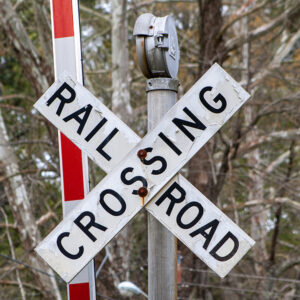Granite State Democrats at the federal and state level continue supporting a billion-dollar commuter rail proposal connecting Concord to Boston, even as other rail projects are derailed by high costs or massive delays.
In New York, Gov. Kathy Hochul (D) announced Monday the state is abandoning plans for the so-called “AirTrain,” a rail link connecting LaGuardia Airport to New York City’s subway and commuter rail system. First proposed by Gov. Andrew Cuomo in 2015 for $450 million, the budget ballooned to $2.4 billion — a number critics said was certain to rise even higher.
In Atlanta, locals embraced calls for expanded commuter rail and, in 2016, voted themselves a $2.7 billion sales tax hike to pay for it. Seven years later, the Metropolitan Atlanta Rapid Transit Authority (MARTA) has abandoned two light-rail routes that were supposed to be funded by the new taxes as the agency faces a $1 billion shortfall. The system is adding new buses instead.
And in neighboring Massachusetts, the MBTA has spent nearly $1 billion just to update how it collects fares, and it can’t even get that on track. A 2018 contract to replace the CharlieCard system was supposed to cost $723 million and be up and running by 2021. Today, the cost is estimated at $935 million and Gov. Maura Healey’s administration hopes it will be operational by 2024.
All those projects are stellar performers, however, compared to the taxpayer train wreck that is California’s commuter rail project. First pitched as a high-speed “bullet train” carrying commuters from Los Angeles to San Francisco at speeds of up to 220 miles per hour, the current plan goes from Merced to Bakersfield, Calif. at speeds not much faster than the Acela.
And while the distance the train covers has been cut by nearly two-thirds, the cost has jumped from $22.8 billion to more than $35 billion, the rail authority announced last week. In fact, as the Los Angeles Times reported, “The cost of that partial system is now higher than the $33-billion estimate for the entire 500-mile Los Angeles-to San-Francisco system when voters approved a bond in 2008.”
The cost of the proposed Capitol Corridor commuter rail system has been steadily rising as well. As the Josiah Bartlett Center reports, “The 2023 draft financial analysis projects a total construction cost of $792 million. That is a 322.5 percent increase over the DOT’s original projection of $245.6 million in 2014.”
Few serious observers believe the final price tag would be below $1 billion if the project were built.
The same with annual operating costs, which have risen from a projected $11 million a year to more than $17 million. Given the low ridership numbers in the Department of Transportation’s own analysis, the commuters who ride the train would cover a small percentage of the costs.
And yet Granite State Democrats continue enthusiastically endorsing the proposal. All four members of the federal delegation back it with Rep. Chris Pappas saying, “The Capitol Corridor project is essential,” and Rep. Annie Kuster calling it “a vital economic engine.”
Democrats point out federal funds would cover about half the construction cost, and Massachusetts is expected to cover another 12 percent or so. But 40 percent of $1 billion is still $400 million, and there is no guarantee the federal funding would come through. Just ask California.
The Trump administration pulled a $929 million grant from the failing bullet-train project. It was restored by President Joe Biden in 2021.
Then the GOP took control of the U.S. House of Representatives.
“In no way, shape, or form should the federal government allocate another dollar to California’s inept high-speed rail,” Rep. Kevin McCarthy (R-Calif.) said after taking the Speaker’s gavel. “The California High-Speed Rail Authority has missed countless timelines and deceived the public about costs, which are exorbitantly higher than originally estimated.”
How enthusiastic would a Trump, DeSantis, or even Sununu administration be about funding a billion-dollar rail project in deep-blue New England? Assuming Republicans don’t control at least one chamber of Congress?
In Concord, Republicans have proposed HB110 to stop any state tax dollars from going to new rail projects. Democrats in the legislature oppose it, insisting Granite Staters want rail and are willing to pay for it.
One of the two parties is on the wrong track.






